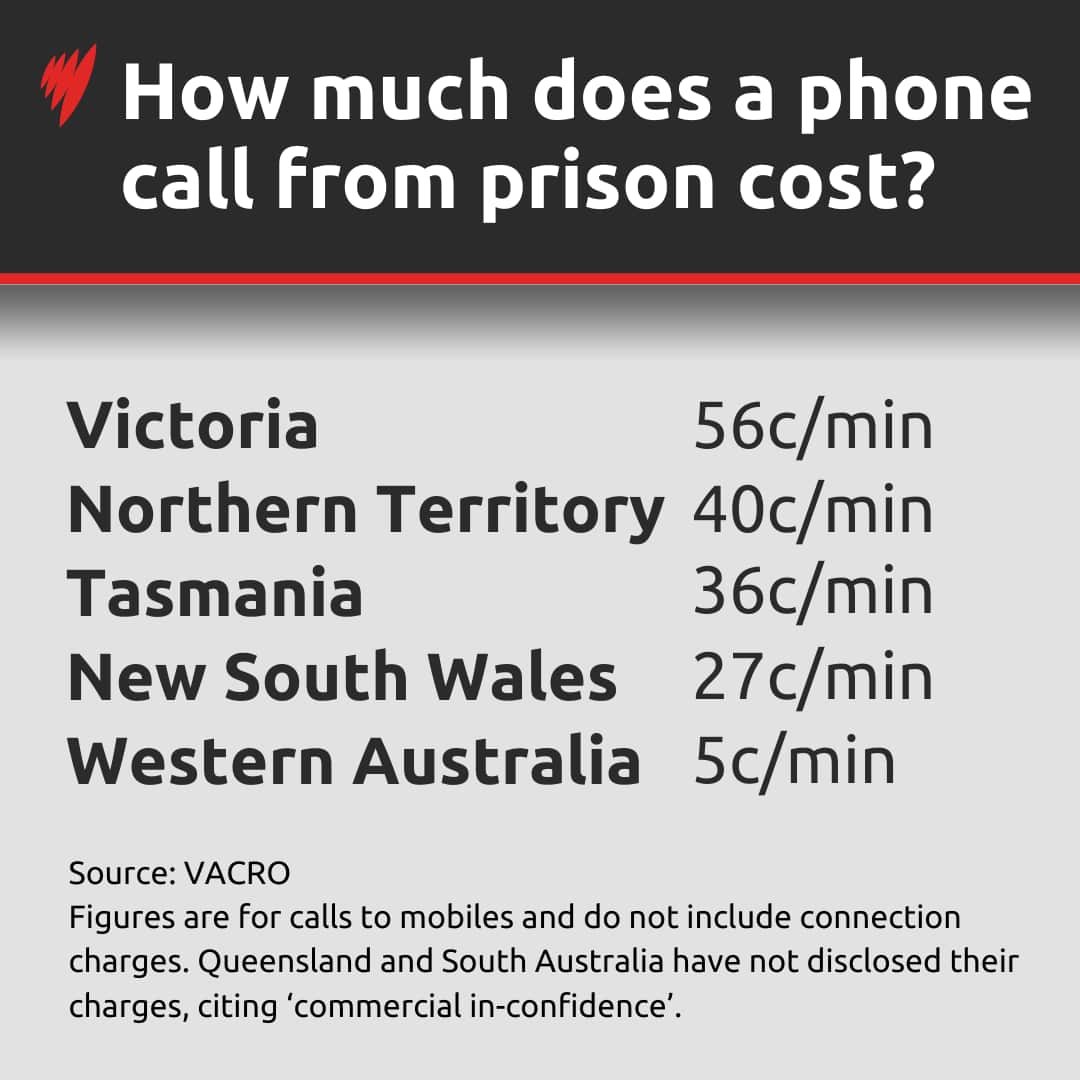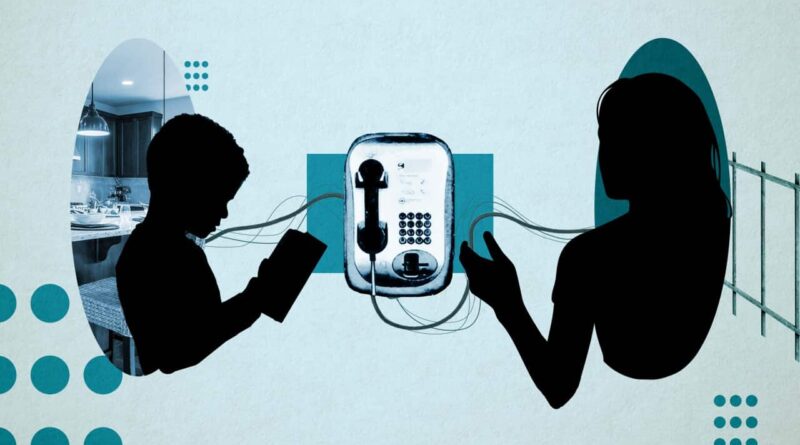Victorian prisoners’ connection to the outside world is being stifled by exorbitant phone call costs that must be made free to improve their rehabilitation prospects, advocates say.
Those incarcerated in the state pay nearly $7 for a 12-minute call — the maximum duration — to a mobile number. It’s the highest reported fee in the country.
It’s cheaper to call a landline, but the number of households with this connection . Calls to the Victorian Ombudsman and Health Services Commissioner are free.
The $7 charge might not sound like much, but Victorian prisoners earn between $3.95 to $8.95 a day — and that income also needs to go towards canteen purchases such as snacks and toiletries. Some may receive money from friends and family to a maximum of $150 a month, plus an additional $70 for phone calls.
Thirteen community, legal, and social service groups recently reignited a push for calls to be made free, arguing that jailed parents should not be forced to choose between foregoing communication with their children to afford items at the canteen.
Among them was the Human Rights Law Centre. Monique Hurley, the Centre’s managing lawyer, labelled the cost “inappropriate” and “damaging” to “really crucial connections” between prisoners and their, children, siblings, and friends.
“This has been an issue in Victorian prisons for some time, I think it’s particularly pertinent when phone call costs in the community are approaching zero,” Hurley told SBS News.
Hurley stressed that “disconnection from family can have profound, damaging, and long-lasting impacts on people’s lives.”
“That’s particularly acute for Aboriginal and Torres Strait Islander people who are already over criminalized in the prison system due to a combination of structural racism, discriminatory policing, and the ongoing impacts of colonization.”
How does the cost of phone calls compare Australia-wide?
Calls from Victorian, Queensland, and Tasmania prisons are serviced by the same prison phone specialist, Comsec TR. However, the fees vary across the states.
While prisoners in Victoria pay a $0.30 connection fee, then $0.57 per minute, their Tasmanian counterparts pay a reduced fee of $0.36 per minute, according to data obtained by Vacro — a Victorian community organisation that supports people in the justice system and their families.
Meanwhile, those jailed in Western Australia pay 5c per minute, after a $0.35 connection fee, making a 12-minute call less than $1.
The Victorian government says the higher costs factor in a range of security requirements, such as phone call recording and monitoring.
It defended the current structure, with a spokesperson saying it “encourages people in custody to maintain ties with family”.
“Video and audio calls via Zoom are available at no cost to people in custody in Victoria and there is no limit to the number of these calls that can be made across the year,” the spokesperson said.
However, both Hurley and Deb Tsobaris — CEO of the Centre for Excellence in Child and Family Welfare — had concerns Zoom calls were not as easily accessible.
Tsobaris said they could be part of a communication mix, but were often quite difficult to set up, with calls to mobile much easier.
“We understand the challenges, but it’s extremely expensive here in Victoria for parents to maintain this sort of contact. So any reduction would be fantastic. We’d like it to be easy and free,” Tsobaris told SBS News.
The importance of connection with community
Tsobaris stressed how difficult the experience of having parents incarcerated is for both the adults and their children.
“It’s pretty painful to be disconnected from your kids for any period of time and not know what’s going on… also kids have a right to be able to contact their parents,” she told SBS News.
“Lots of kids look forward to these phone calls, especially if they’re regular so that you maintain that familiarity.”
In 2022, an inquiry into children with imprisoned parents recommended the Victorian government “[extend] time limits on phone calls and [make] them free for families”.
Corrections Victoria Commissioner Larissa Strong said at the time strong family relationships improved “mental health, education, and employment outcomes”.
She added that those connected to their children are “more likely to engage in positive behaviour post-release”.
Abigail Lewis, Vacro senior policy advisor, said the current costs contravene the right of children to contact their parents and “all of the evidence that shows strong family connection is one of the most important protective factors against reoffending post-release”.
“If the government wants to strengthen families and communities by reducing justice system involvement, it needs to fund these calls,” she said.






